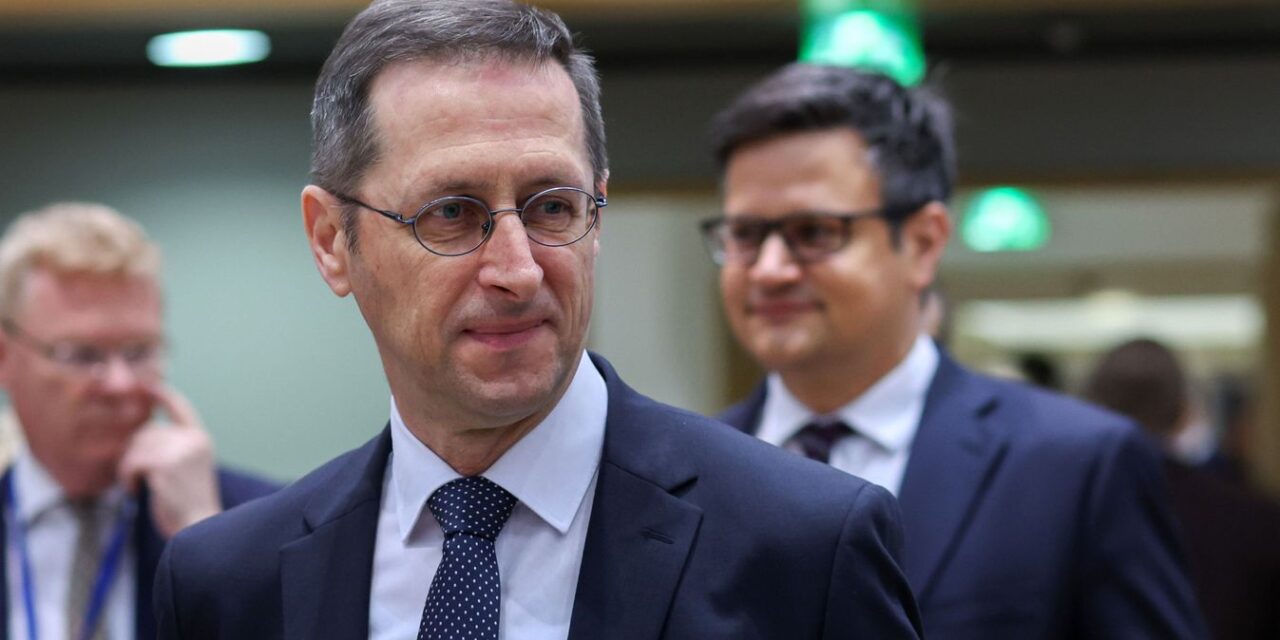"Confidence in Hungary is unbroken: Standard and Poor's has once again confirmed Hungary's debt rating and continues to categorize our country as recommended for investment," writes the Ministry of National Economy in its statement, reacting to the credit rating agency's decision.
Today's report by Standard and Poor's continues to recommend Hungary for investment with a stable outlook, which, according to the Ministry of National Economy, means that the Hungarian economy is on solid foundations.
"Confidence in Hungary is strong among all major credit rating agencies, so in addition to Standard and Poor's, Moody's and Fitch Ratings also classify our country as recommended for investment"
- says the ministry in its statement.
As they write, the perception of Hungary on the international financial markets is favorable, the strong investor and market confidence is also supported by the successful bond auctions and the continuous inflow of foreign working capital investments:
Among others, the largest German car manufacturing companies are investing in our country, and the Chinese electric car manufacturer BYD is the first in the EU to start manufacturing its electric cars in Hungary.
The popularity of Hungarian government bonds is unbroken both on the international market and among the Hungarian population, as evidenced by the fact that the holdings of retail government bonds closed at a new record of more than HUF 10,760 billion at the end of March.
The country's financing situation is stable and secure, the government is committed to reducing the budget deficit and the national debt, the twin deficits have ended, and our country's foreign trade balance is constantly improving.
The Hungarian economy is on a stable foundation, compared to 2010, 1 million new jobs were created, so the number of employed people now exceeds 4.7 million, while the number of registered jobseekers is at a historic low.
According to the announcement of the Ministry of National Economy, "inflation caused by the war and the failed sanctions in Brussels was suppressed by the effective measures of the government", as a result of which real wages have been growing dynamically for six months. As a result of rising real wages, retail turnover has already begun to recover, and in the first two months of 2024, year-on-year, it expanded steadily, by 0.6 percent in January and by 1.1 percent in February.
That's why the government will restart it this year after successfully suppressing inflation, and next year it will further increase the rate of economic growth, and when the war is over, Hungary will once again be one of the fastest growing economies in Europe, the ministry promises. Looking at the numbers, this means that the GDP in Hungary will grow by 2.5 percent in 2024 and by 4.1 percent in 2025.
"The government is working to ensure that Hungary's development reaches 90 percent of the European Union's development average by 2030. The Ministry of National Economy has developed the government's new competitiveness strategy in order to achieve this"
- concludes the statement.
Mihály Varga also spoke
There was good news for the weekend: Standard and Poor's has confirmed Hungary's rating and continues to recommend Hungary for investment, said the Minister of Finance Mihály Varga in a video uploaded to his Facebook page on Friday evening.
The Minister of Finance said: according to the credit rating agency, the Hungarian economy will return to the growth path this year, and it could expand by over 3 percent next year, putting it at the top of the EU ranking.
The analysis also points out that Hungary remains an attractive destination for investments, the unemployment rate may continue to improve in the coming years, and the current account surplus may be maintained in the longer term. They write approvingly about the stability of the Hungarian banking system, as well as the favorable structure of the state debt and its safe financing, explained Mihály Varga.
Despite the crises of recent years, Hungary is recommended for investment by all three credit rating agencies, and Hungary is ranked two grades higher than at the beginning of the last decade
said the finance minister.
Featured image: Finance Minister Mihály Varga arrives at the Ecofin meeting in Brussels on March 12, 2024. MTI/EPA/Olivier Hoslet












